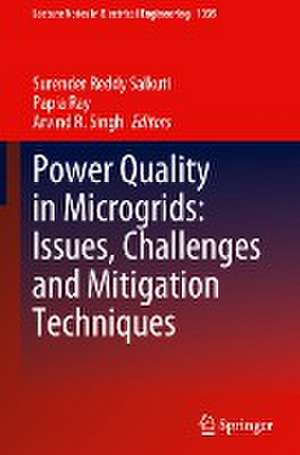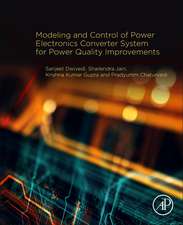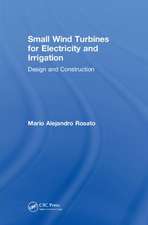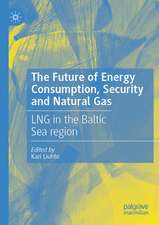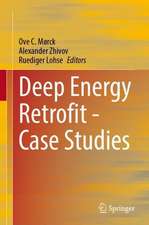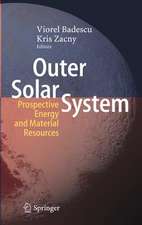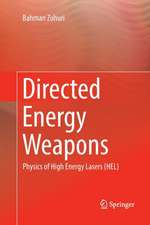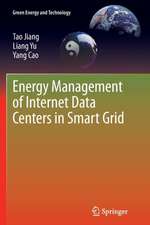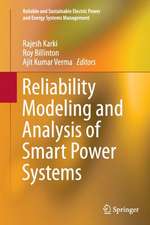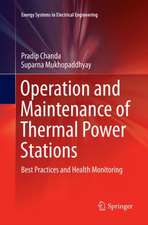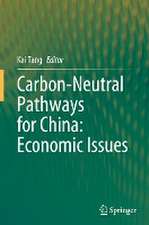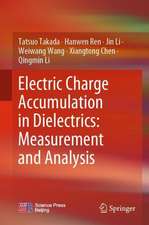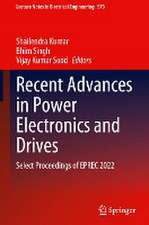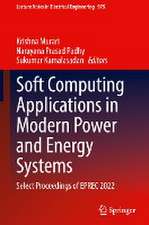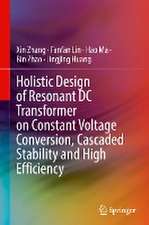Power Quality in Microgrids: Issues, Challenges and Mitigation Techniques: Lecture Notes in Electrical Engineering, cartea 1039
Editat de Surender Reddy Salkuti, Papia Ray, Arvind R. Singhen Limba Engleză Hardback – 14 iun 2023
| Toate formatele și edițiile | Preț | Express |
|---|---|---|
| Paperback (1) | 959.18 lei 38-44 zile | |
| Springer Nature Singapore – 15 iun 2024 | 959.18 lei 38-44 zile | |
| Hardback (1) | 1133.61 lei 3-5 săpt. | |
| Springer Nature Singapore – 14 iun 2023 | 1133.61 lei 3-5 săpt. |
Din seria Lecture Notes in Electrical Engineering
- 18%
 Preț: 1859.04 lei
Preț: 1859.04 lei - 18%
 Preț: 895.27 lei
Preț: 895.27 lei - 17%
 Preț: 397.66 lei
Preț: 397.66 lei - 18%
 Preț: 1562.17 lei
Preț: 1562.17 lei - 20%
 Preț: 1473.39 lei
Preț: 1473.39 lei - 18%
 Preț: 5169.60 lei
Preț: 5169.60 lei - 20%
 Preț: 1741.49 lei
Preț: 1741.49 lei - 20%
 Preț: 1918.04 lei
Preț: 1918.04 lei - 18%
 Preț: 1573.20 lei
Preț: 1573.20 lei - 18%
 Preț: 1851.77 lei
Preț: 1851.77 lei - 18%
 Preț: 1578.72 lei
Preț: 1578.72 lei - 18%
 Preț: 1903.08 lei
Preț: 1903.08 lei - 18%
 Preț: 2113.02 lei
Preț: 2113.02 lei - 18%
 Preț: 892.42 lei
Preț: 892.42 lei - 18%
 Preț: 1404.30 lei
Preț: 1404.30 lei - 18%
 Preț: 1847.84 lei
Preț: 1847.84 lei - 18%
 Preț: 1384.56 lei
Preț: 1384.56 lei - 20%
 Preț: 1300.14 lei
Preț: 1300.14 lei - 20%
 Preț: 1174.76 lei
Preț: 1174.76 lei - 20%
 Preț: 1310.03 lei
Preț: 1310.03 lei - 18%
 Preț: 2546.29 lei
Preț: 2546.29 lei - 20%
 Preț: 1310.03 lei
Preț: 1310.03 lei - 18%
 Preț: 1676.58 lei
Preț: 1676.58 lei - 20%
 Preț: 1182.20 lei
Preț: 1182.20 lei - 18%
 Preț: 1392.46 lei
Preț: 1392.46 lei - 18%
 Preț: 1119.38 lei
Preț: 1119.38 lei - 18%
 Preț: 1678.16 lei
Preț: 1678.16 lei - 18%
 Preț: 1596.85 lei
Preț: 1596.85 lei - 18%
 Preț: 1398.00 lei
Preț: 1398.00 lei - 20%
 Preț: 1445.35 lei
Preț: 1445.35 lei - 18%
 Preț: 1244.89 lei
Preț: 1244.89 lei - 20%
 Preț: 1173.10 lei
Preț: 1173.10 lei - 18%
 Preț: 810.81 lei
Preț: 810.81 lei - 20%
 Preț: 1173.93 lei
Preț: 1173.93 lei - 20%
 Preț: 1482.47 lei
Preț: 1482.47 lei - 20%
 Preț: 1915.57 lei
Preț: 1915.57 lei - 18%
 Preț: 1387.73 lei
Preț: 1387.73 lei - 18%
 Preț: 1425.62 lei
Preț: 1425.62 lei - 20%
 Preț: 1297.67 lei
Preț: 1297.67 lei - 18%
 Preț: 1407.46 lei
Preț: 1407.46 lei - 18%
 Preț: 1667.91 lei
Preț: 1667.91 lei - 18%
 Preț: 1400.35 lei
Preț: 1400.35 lei - 18%
 Preț: 1117.03 lei
Preț: 1117.03 lei - 18%
 Preț: 1573.20 lei
Preț: 1573.20 lei - 18%
 Preț: 1405.90 lei
Preț: 1405.90 lei - 18%
 Preț: 726.37 lei
Preț: 726.37 lei - 18%
 Preț: 1405.90 lei
Preț: 1405.90 lei - 18%
 Preț: 1238.56 lei
Preț: 1238.56 lei - 18%
 Preț: 725.61 lei
Preț: 725.61 lei
Preț: 1133.61 lei
Preț vechi: 1382.45 lei
-18% Nou
Puncte Express: 1700
Preț estimativ în valută:
216.96€ • 225.63$ • 181.55£
216.96€ • 225.63$ • 181.55£
Carte disponibilă
Livrare economică 22 februarie-08 martie
Preluare comenzi: 021 569.72.76
Specificații
ISBN-13: 9789819920655
ISBN-10: 9819920655
Pagini: 583
Ilustrații: XVIII, 583 p. 251 illus., 179 illus. in color.
Dimensiuni: 155 x 235 mm
Greutate: 1.16 kg
Ediția:2023
Editura: Springer Nature Singapore
Colecția Springer
Seria Lecture Notes in Electrical Engineering
Locul publicării:Singapore, Singapore
ISBN-10: 9819920655
Pagini: 583
Ilustrații: XVIII, 583 p. 251 illus., 179 illus. in color.
Dimensiuni: 155 x 235 mm
Greutate: 1.16 kg
Ediția:2023
Editura: Springer Nature Singapore
Colecția Springer
Seria Lecture Notes in Electrical Engineering
Locul publicării:Singapore, Singapore
Cuprins
Introduction to Power Quality in Microgrids.- Application of Computational Intelligence Methods for Power Quality Disturbance Detection, Classification and Mitigation in Microgrids.- A Comprehensive Power Quality Mitigation Tool: UPQC.- Real-Time Validation of Power Quality Enhancement Techniques in a Distribution Network.
Notă biografică
Surender Reddy Salkuti received the Ph.D. degree in electrical engineering from Indian Institute of Technology, New Delhi, India, in 2013. He was Postdoctoral Researcher at Howard University, Washington, DC, USA, from 2013 to 2014. He is currently working as Associate Professor in the Department of Railroad and Electrical Engineering, Woosong University, Daejeon, Republic of Korea. Recently, he edited a book in “Lecture Notes in Electrical Engineering (Springer Nature)” titled “Next Generation Smart Grids: Modeling, Control and Optimization”. His current research interests include power system restructuring issues, ancillary service pricing, real and reactive power pricing, congestion management, and market clearing, including renewable energy sources, demand response, smart grid development with integration of wind and solar photovoltaic energy sources, battery storage and electric vehicles, artificial intelligence applications in power systems, and power system analysis and optimization. He received Distinguished Researcher Award from Woosong University Educational Foundation, Republic of Korea, in 2016, and POSOCO Power System Award (PPSA), India, in 2013. He is Member of IEEE and IEEE Power and Energy Society.Papia Ray has received her Bachelor of Engineering (Electrical Engineering) degree from Government Engineering College, Bihar, Master of Technology (Power Systems) from National Institute of Technology, Jamshedpur, and PhD degree from Indian Institute of Technology, Delhi, in 2013. She is presently serving as Associate Professor in Electrical Engineering Department of Veer Surendra Sai University of Technology (Govt. Univ), Burla, Odisha. She has 20 years of teaching experience. She has more than 50 research publications in journals like IET, Elsevier, and Wiley, etc. She is Senior Member of IEEE, Fellow of Institution of Engineers, and Life Member of ISTE. Further, she is Recipient of the Young Scientist award by DST, New Delhi, in 2015. Recently, she has published two book titled “Microgrid: Operation, Control and Protection” and “Next Generation Smart Grids: Modeling, Control and optimization” in Springer Nature. Her research interest includes power system protection, power quality, microgrid, wide area measurement systems, etc.Arvind R. Singh working as Lecturer in the department of Electrical, Electronics and Computer Engineering, Power Group, University of Pretoria, South Africa. He is Senior Member of IEEE and Member of IAENG. His research interests are microgrid operation, control, and protection; optimal operation of distributed energy resources in microgrids; smart grids and integration of renewable energy sources; and optimal generation scheduling and energy management of microgrids. In the microgrids optimization and energy management, optimal dispatch, he has published around 13 articles in the highly reputed and referred journals. Also, he has published several chapters in this area in recent years contributing from control and optimization of microgrids for efficient design and deployment in Springer, Elsevier, and Taylor and Francis book publishing platforms. His publications are highly cited and referred in recent years for his contribution in research on microgrid and renewable energy sources. He is highly recognized in all major journals and invited for reviews and Program Committee Member in Journals of high reputed and IEEE, Springer, etc., international conferences.
Textul de pe ultima copertă
This book provides a brief insight of various challenges and its mitigation techniques in microgrid due to power quality (PQ) issues. The central concept of this book revolves around the PQ issues in microgrid. The main objective of this book is to make aware of the power and control engineers with different innovative techniques to mitigate the challenges due to PQ issues in microgrid. The topics covered in this book are PQ disturbances in microgrid and different recent and innovative schemes to mitigate them. The book emphasizes technical issues, theoretical background, and practical applications that drive postgraduates, researchers, and practicing engineers with right advanced skills, vision, and knowledge in finding microgrid power quality issues, various technical challenges and providing mitigation techniques for the future sustainable microgrids.
Caracteristici
Provides a brief insight of various challenges and its mitigation techniques in microgrid due to power quality issues Discusses new protection concepts for compensated networks Serves as a reference resource for researchers and practitioners in academia and industry
